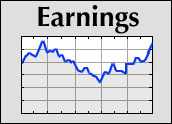
U.S. consumer confidence took a sharp drop in October, according to a private survey of 5,000 domestic households by the Conference Board.
The index fell to 92.8 from 96.7, making October the third consecutive declining month. The new rating is the last one before the U.S. Presidential election next week, and is being closely watched for omens of the results.
The Conference Board report said the fall was a sign of nervousness about jobs and income, which could be a negative sign for the re-election of President George W. Bush. The index stood at 115.7 when Bush was inaugurated in January 2001, but has declined with slowing job growth and rising oil prices.
Looking Forward
The consumer index mirrors corporate expectations, according to AMR Research analyst Fenella Scott. She prepares a regular report on spending outlook among information technology executives and said she sees “somewhat of a decline in spending over the past 12 months.” But Scott has seen this before in election years.
“They’re in a ‘wait-and-see’ mode, more cautious about going ahead with what’s already budgeted,” she said.
Historically, re-election campaigns have failed when the index stood below 99. It was at 54.6 when Bill Clinton defeated President George H.W. Bush in 1992.
Lynn Franco, director of the Conference Board’s Consumer Research Center, spoke of subdued expectations, as opposed to eroding present-day conditions, as the major element in the index’s decline.
Job Concerns
The proportion of consumers expecting their incomes to improve in the months ahead dipped to 18.4 percent from 20.0 percent last month.
The employment outlook was also subdued. Consumers expecting fewer jobs to become available in the coming months rose to 18.4 percent from 16.2 percent, while those anticipating more jobs to become available slipped to 16.5 percent from 17.8 percent.
The Conference Board’s Franco commented that the gain in consumer assessment of the labor market showed a moderate improvement, but not enough to ease their concerns about job growth.
Consumers planning to buy a car rose to 7.4 percent from 6.3 percent, but home buyers dropped slightly. The count of plans to buy major appliances dropped to 27.1 percent from 29.8 percent.
Conference Board research found confidence lowest in Pennsylvania, Wisconsin, Michigan and Ohio and strongest in the southern region including Florida.
Bureau of Economic Analysis economist Jeffrey Crawford said the consumer confidence number has “no impact on other statistics.”


















































Social Media
See all Social Media